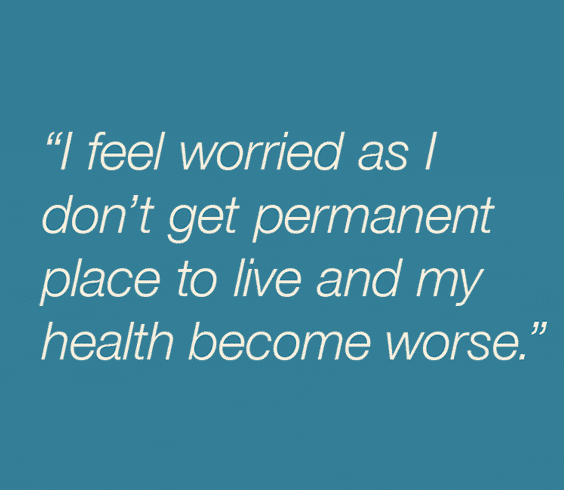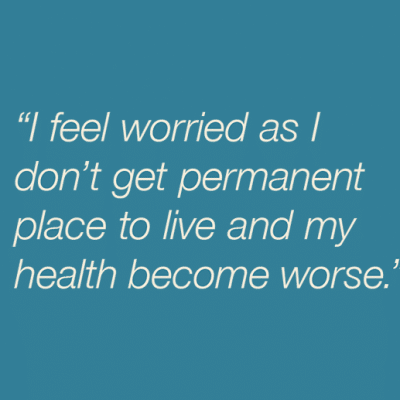What comes to mind when you think about your home? A place where you can rest? Somewhere you feel safe? Somewhere you just belong and don’t have to worry? For some it might be a place where they are with family. For others it is a place where they can escape and be by themselves. Maybe you see home as somewhere you feel welcome? Or is it somewhere you can give hospitality and community, making others feel welcome?
Home could be any one or all of these things. Whatever else home means to us, our home is simultaneously somewhere safe and warm to sleep, and is somewhere to belong and welcome others. This Sunday, the Christian community across the UK comes together to reflect and pray for those many people who do not have a home; uniting their voice to offer solidarity and demand change.
At JRS UK we work with many people who find themselves without a home. At our day centre in Wapping, we accompany people who were forced to flee their homes and who now live in destitution. They are doubly homeless. Why? Having been let down by an asylum system that is supposed to protect them and refused asylum, they have been made destitute by government policy, banned from working – like all seeking asylum – or claiming any kind of support. This is in the wider context of the hostile environment that excludes them from myriad areas of daily life and bars them from basic services. Their destitution arises from a system that declares to those whose homes have been destroyed you have no home here.
In January, we published a report based on surveys in which those we serve told their stories of homelessness. The results of course remain relevant, and offer important reflection for Homeless Sunday. Everyone surveyed was legally homeless. Over 60% of people had slept rough within the last year and nearly half didn’t have a regular place to sleep. The reality of this is that many of our refugee friends were sleeping on friends’ floors or sofas until one wasn’t available, at which point they’d end up sleeping in the park or on a night bus.
Unfortunately, the situation was not much better when they did find somewhere to stay? 42% of people didn’t feel comfortable around those they lived with, and a third of people didn’t even feel physically safe. We heard of lives lived precariously, perpetually in limbo and framed by fear.
“I believe refugees should be treated as humans.”
The physical strain of destitution was a recurring theme; so was the dehumanisation of destitution. For a particular question, one person answered by saying simply. “I believe refugees should be treated as humans”. Again and again, we heard that people felt unwelcome, excluded, and afraid. The lack of physical security inherent in homelessness was entwined with a profound sense of marginalisation. Running through both was a fear of immigration control. Respondents told us they were afraid of being detained and forcibly removed.
Immigration policy creates and enforces refugee homelessness and frames the terms on which refugee homelessness is experienced. For destitute people seeking asylum, homelessness can extend for decades. This experience of destitution, homelessness, and the hostile environment is “torturing to the human soul”, as one refugee friend explained.
The hostile environment is “torturing to the human soul”
This Homeless Sunday, as we reflect on homelessness, we must confront the double homelessness of the forcibly displaced. And that means confronting the policy that manufactures it. It means coming together in solidarity with those who seek sanctuary to demand an end to the policies that craft destitution.
Inspired to get involved? Why not contact your local MP?
Engage them in dialogue and ask them to give those seeking and refused asylum the right to work. For more ideas about how to stand with destitute people seeking asylum, see the briefing on our report.



